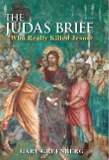A few years ago I presented a paper at an international scholars conference entitled "Osarseph and Exodus: Literary reflections in an Egyptian Mirror." The thrust of the paper was that the biblial Exodus account utilized an Egyptian literary motif to tell the story. Implicit in the paper was the idea that the Exodus was a real historical event that happened at about the time the bible says it happened. The starting point of the paper was the examinmation of an Egyptian account of the biblical Exodus that dates to the third century bc/bce but presents a very different perspective from that of the bible, one that portrays Moses and the Israelites in a very negative light. The paper examined the story in the light of Egyptian history, literature, and myth and then compared the elements of the Egyptian story to the biblical story.
You can read the paper here.
This Egyptian history of the Exodus is usually dismissed as simply a late anti-Jewish invention or based on erroneous historical sources. The thought experiment I have in mind is that you read the paper and then imagine if a similar sort of story had been discovered in an Assyrian or Babylonian archives presenting a Mesopotamian historical perspective, with similar sorts of historical and literary parallels. Do you think in such a case biblical and near eastern scholars would be as dismissive of that account as they are towards the Egyptian story?
To assist you in reading the paper let me explain a few references that appear in the text.
- The primary author of the Egyptian text was an Egyptian priest named Manetho, who wrote what appears to have been a highly popular history of Egypt. His manuscript is lost but portions of it are quoted by Josephus, Africanus and Eusebius. However, his Egyptian chronology as preserved has been badly garbled in many places. Despite the distortions that have crept into these later copies, Egyptological scholars recognize that he worked from legitimate sources and often had very good information even about the very early dynasties of Egypt in the third millennium bc/bce.
- The Hyksos kings were a non-Egyptian group of rulers who conqured parts of Egypt and ruled various portions from about 1750 to 1575 (or 1550) before being expelled. Josephus refers to them as the "Shepherd Kings" and equates the expulsion of the Hyksos with the Exodus, a theory that was quite popular for many centuries afterwards.
- The monotheistic Pharoah Akhenaten ruled for about 18 years, starting somewhere between about 1372 and 1350, depending on which chronology you follow. His original throne name was Amenhotep IV but he changed it to Akhenaten in his fifth year, at about which time he began to launch his monotheistic revolution. Greek texts tend to render the name Amenhotep as Amenophis. There are about 13 years from the end of Akhenaten's reign to the start of Horemheb's reign.
- Most biblical scholars would date the Exodus to sometime during the long reign of Ramesses II, whose first year was either 1305 or 1279 depending upon which version of Egyptian chronology you follow. Ramesses II was preceded by Sethos I, Ramesses I, and Horemheb, in that order.
Subscribe to:
Post Comments (Atom)



No comments:
Post a Comment